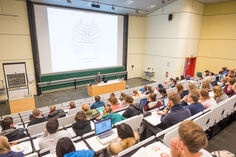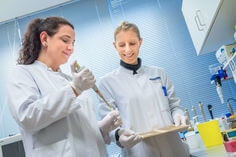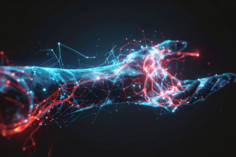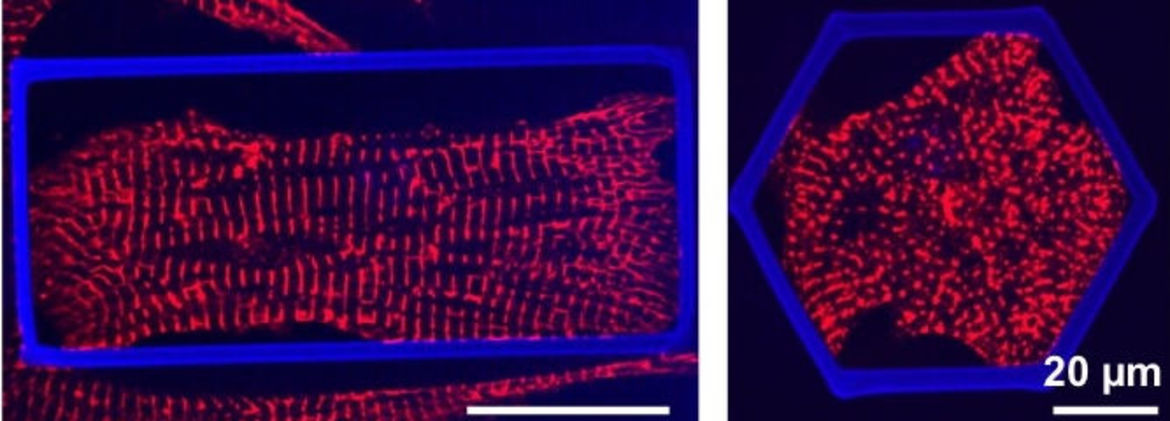- Institut
-
Herz- und Kreislaufphysiologie
- Markus Hecker
- Thomas Korff
-
Hugo H. Marti
-
Forschung
- Zelluläre und molekulare Mechanismen der postnatalen Entwicklung des zerebralen Gefäßsystems
- Die Bedeutung der molekularen PHD-HIF Achse für den akuten Schutz und die langfristige Regeneration nach einem ischämischen Schlaganfall
- Charakterisierung und gezielte Aktivierung von NRF2-abhängigen antioxidativen Mechanismen beim akuten Schlaganfall
- Extrazelluläre Nukleinsäuren als Trigger neuroinflammatorischer Prozesse in akuten und chronisch degenerativen Erkrankungen des Zentralnervensystems
- Neuroprotektion und Neurogenese
- Blut-Hirn-Schranke
- Publikationen
- Personal
-
Forschung
- Andreas H. Wagner
- Neuro- und Sinnesphysiologie
- Lehre
- Zentrale Einrichtungen
- Bernard Katz Lecture
- Stellenangebote
- Aktuelles
The regenerative potential of the adult heart is very limited and insufficient to replace damaged muscle mass in the diseased heart. Recent advances in cardiac cell therapy and tissue engineering fuel new hope for the development of novel therapeutic approaches with the aim to trigger myocardial regeneration after injury. Stem cell-derived cardiomyocytes represent ideal candidates for cardiac cell-based therapeutic strategies, and current research focuses on the development of cardiac constructs for implantation. Despite the cardiogenic properties of the newly generated cardiomyocytes, these cells present a heterogeneous and immature phenotype, which is more comparable with cardiomyocytes of early developmental stages. However, successful employment of these new cardiomyocytes for myocardial repair demands that the physiological profile of stem cell-derived cardiomyocytes matches with the functional complexity of mature cardiomyocytes. This is currently not the case. We are interested in gaining better insight into the mechanisms that drive cardiac maturation and follow different approaches to enhance the cardiac phenotype of stem cell-derived cardiomyocytes.
- Institut
-
Herz- und Kreislaufphysiologie
- Markus Hecker
- Thomas Korff
-
Hugo H. Marti
-
Forschung
- Zelluläre und molekulare Mechanismen der postnatalen Entwicklung des zerebralen Gefäßsystems
- Die Bedeutung der molekularen PHD-HIF Achse für den akuten Schutz und die langfristige Regeneration nach einem ischämischen Schlaganfall
- Charakterisierung und gezielte Aktivierung von NRF2-abhängigen antioxidativen Mechanismen beim akuten Schlaganfall
- Extrazelluläre Nukleinsäuren als Trigger neuroinflammatorischer Prozesse in akuten und chronisch degenerativen Erkrankungen des Zentralnervensystems
- Neuroprotektion und Neurogenese
- Blut-Hirn-Schranke
- Publikationen
- Personal
-
Forschung
- Andreas H. Wagner
- Neuro- und Sinnesphysiologie
- Lehre
- Zentrale Einrichtungen
- Bernard Katz Lecture
- Stellenangebote
- Aktuelles





